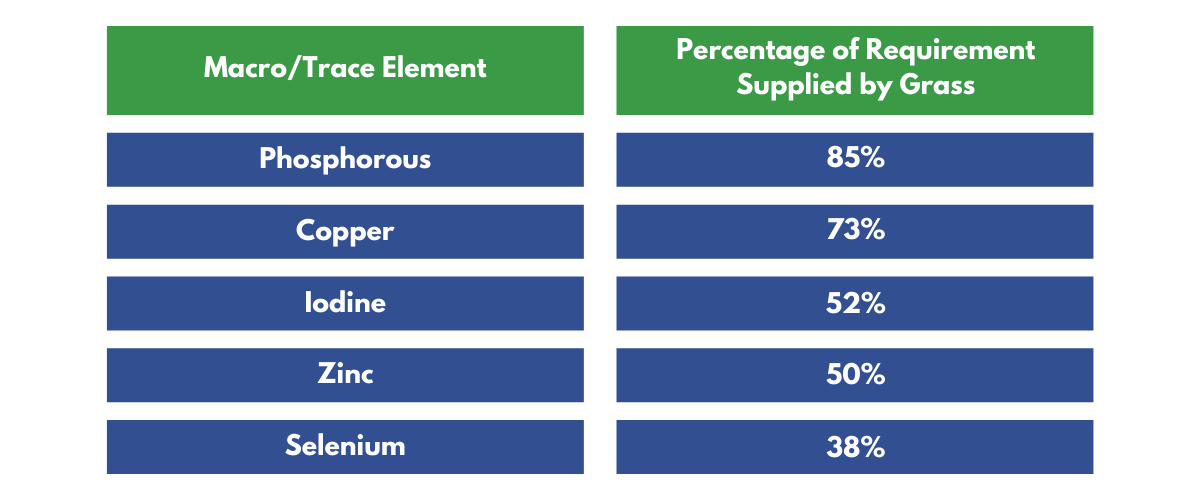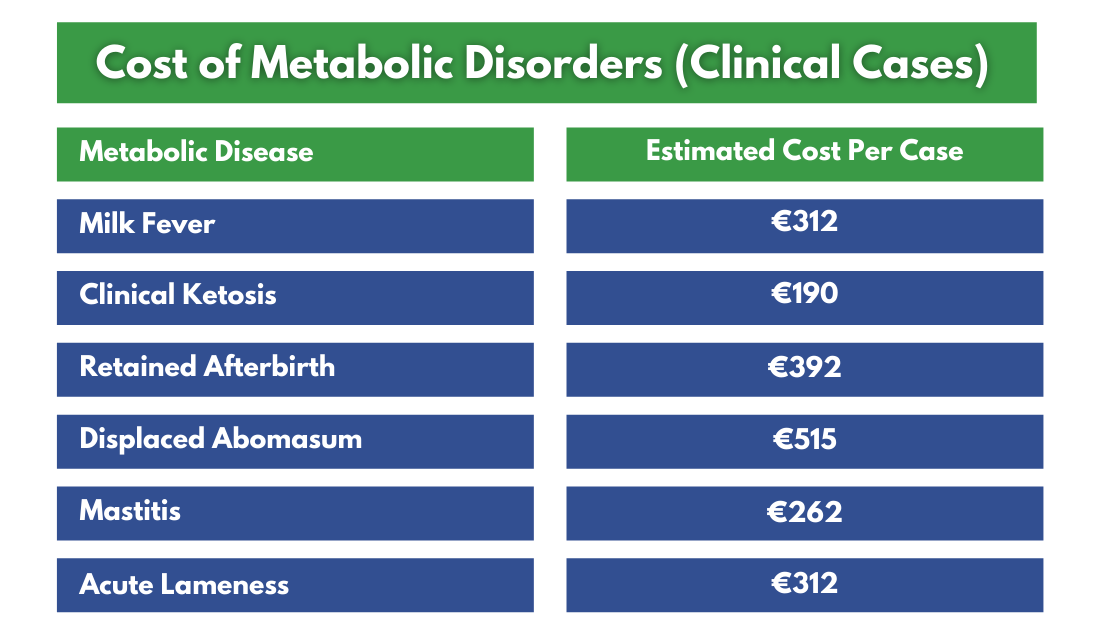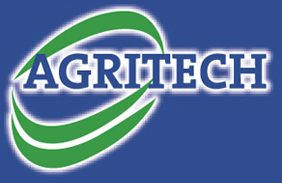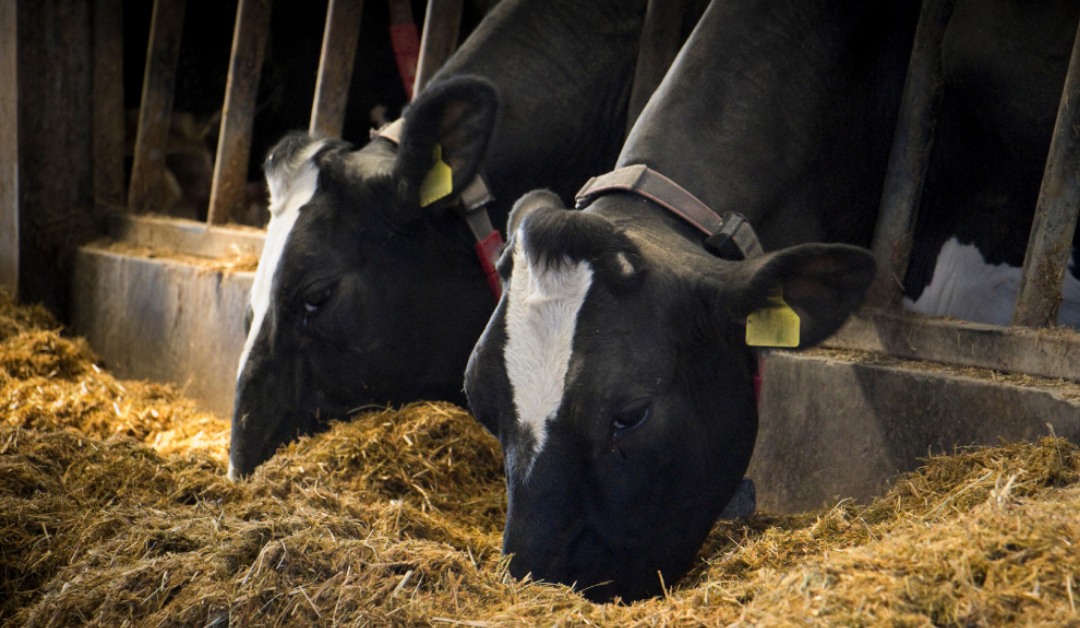Prevention of metabolic issues next spring will centre around decisions made over the coming weeks. When costs associated with clinical metabolic cases are assessed alongside the time and labour cost involved in such cases, the importance of providing the cow with a correct mineral supplement is highlighted further.
Most Irish silages lack the required mineral levels to get the cow through the dry period. The table below highlights that average grass only supplies a fraction of lactating cow requirements for key macro and trace elements, which increases the risk of issues occurring during the calving period. Feeding a dry cow mineral throughout the dry period is essential to build up mineral reserves and allow the cow to calve down without any issues.

Research indicates a single case of milk fever is estimated to cost circa €312 when veterinary costs and consequential production losses are accounted for. In addition, sub-clinical cases are estimated to cost > €100, which is often a more prevalent issue. It is estimated that for every clinical case of milk fever that manifests itself on farm, a further six sub-clinical cases go undetected.
Some farms may also experience issues around milk fever when feeding high K (potassium) silages, which will require a tailored dry cow programme on farm. It is also worthwhile to note that when a sub-clinical milk fever case is experienced, the cow is three times more likely to retain afterbirth, eight times more likely to experience ketosis/weight loss, and eight times more likely to pick up mastitis compared to cows that do not experience such issues.

More Information:
For further information on dry cow mineral provision, contact your local Agritech Sales Advisor or view more of our technical articles.
To learn more about our Welmin Dry Cow Mineral Range, click here.


